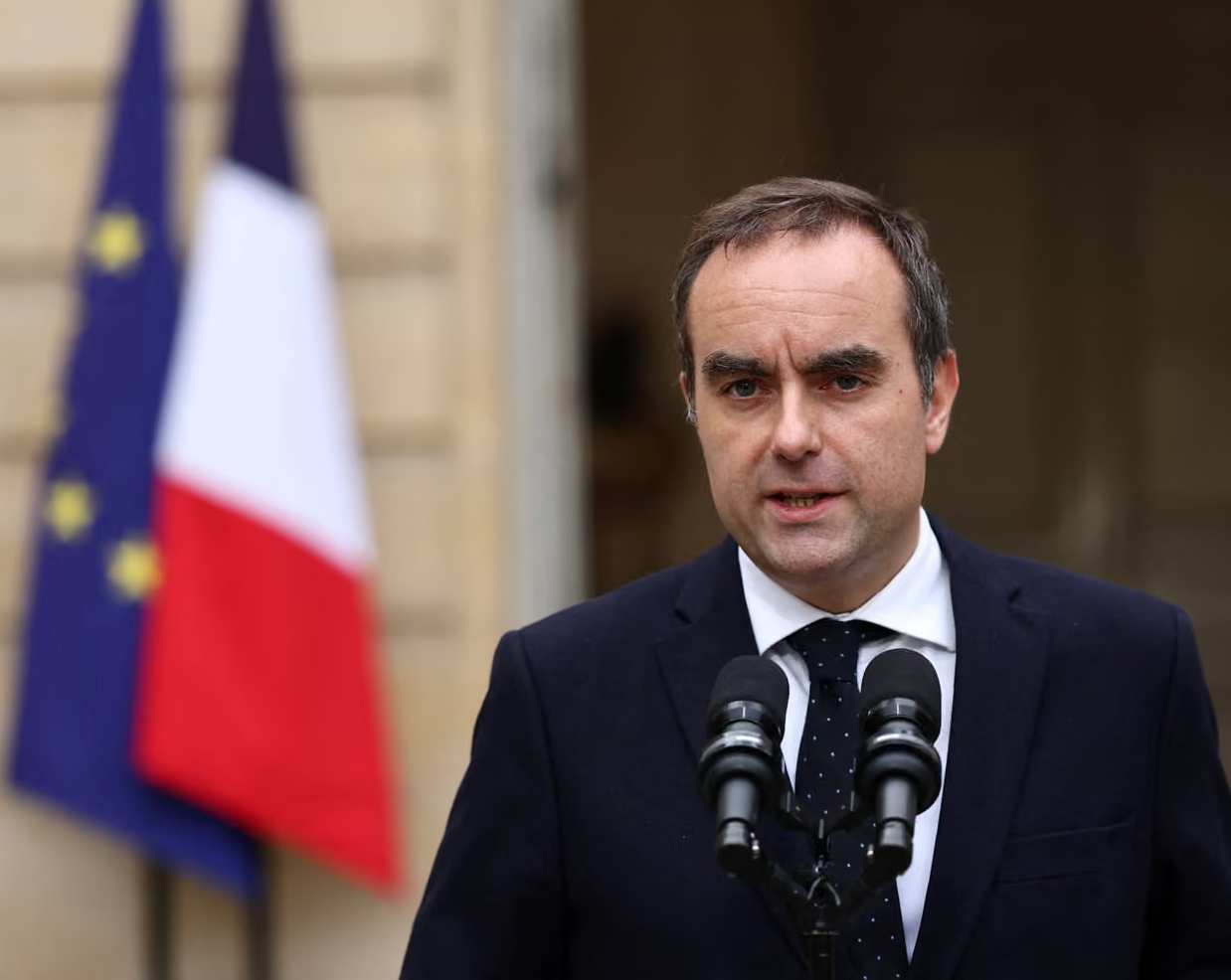
Sébastien Lecornu continues meetings with party leaders in an effort to approve the budget and avoid further political instability
France’s caretaker Prime Minister Sébastien Lecornu said his talks with several party leaders revealed a “willingness” to pass a budget by the end of the year and that early parliamentary elections now seemed less likely.
“This provision creates a momentum and a convergence, obviously, that makes the possibilities of a dissolution more remote,” he said in a brief speech on Wednesday in the courtyard of the Matignon Palace, the prime minister’s residence, in Paris.
Lecornu, who resigned on Monday after 27 days in office but was given 48 hours by Emmanuel Macron to try to drum up support for the new government, said he would present his findings to the French president, as planned, later on Wednesday.
Macron was re-elected in 2022 for a second five-year term, but since last summer’s snap legislative elections, a majority-less parliament has ousted two successive prime ministers who failed to muster a majority to support austerity budget plans.
Lecornu became the third to leave when he tendered his government’s resignation just 14 hours after the inauguration of the new cabinet, saying opposition to the formation from allies and opponents would make it impossible for him to do the job.
He said on Wednesday that reducing France’s growing budget deficit — projected to exceed 5.5% of GDP this year, almost double the limit allowed by the EU — was “vital, including for France’s image abroad and for our ability to borrow.”
The former defense minister, who was due to meet with left-wing parties including the Socialist Party (PS), Greens and Communists later on Wednesday, said “everyone agreed” that the deficit must be “definitely” reduced below 5% next year.
These negotiations would establish “what concessions [a esquerda] will require other political groups to ensure this stability, and also what concessions — if any — they are willing to make to allow this,” he said.
All eyes are now on the PS after Lecornu appeared to offer an olive branch on Tuesday by suggesting that Macron’s unpopular pension changes, approved in 2023, could be “suspended”, meeting in part the center-left party’s demands that they be scrapped.
However, PS leader Olivier Faure said after meeting with Lecornu on Wednesday morning that he had “received no guarantee” that the reform, which raised the retirement age in France from 62 to 64, would in fact be suspended.
If the PS and the moderate left can be won over, a left-led cabinet, supported by Macron’s centrist allies and center-right parliamentarians, could be an option, but it would be fragile — and it does not have the guaranteed support of the center-right, for whom changing the pension system is sacrosanct.
Both the far-right National Union party (RN) and the radical left France Insubmissa (LFI) party have promised to support a vote of no confidence in the new government. “I will block anything that comes from this government,” said RN leader Marine Le Pen on Wednesday. “The joke has gone too far.”
The leader of the LFI parliamentary group, Mathilde Panot, reiterated on Wednesday that her parliamentarians would vote against “any government that persists with Macron’s policies” and “would not participate in the salvation of Emmanuel Macron”.
Lecornu’s shock resignation was the latest twist in the political crisis that has gripped France since snap elections in 2024, which produced a parliament divided into three more or less equal blocs: the left, the far right and Macron’s center-right alliance.
Macron has faced repeated calls from the opposition in recent days to hold early elections or resign to end the crisis, with the far-right RN party demanding a legislative vote and the radical left LFI party calling for the president to step down.
On Tuesday, even the beleaguered president’s longtime allies, including two former prime ministers, Edouard Philippe and Gabriel Attal, distanced themselves from Macron, with Philippe even joining demands for his early departure.
Macron has long said he is reluctant to hold new legislative elections, which polls suggest would likely result in another hung parliament or the inauguration of a far-right government, but has hinted he may do so if Lecornu’s mission fails.
He has also repeatedly said he will not resign before the end of his term in 2027, when presidential elections take place, seen as a defining moment in French politics, with the far-right RN party feeling its best chance of taking power.
Originally published by The Guardian on 10/08/2025
By Jon Henley in Paris
Source: https://www.ocafezinho.com/2025/10/08/primeiro-ministro-frances-espera-concessoes-para-evitar-eleicoes-antecipadas/

